Information Technology
Information technology (IT) is the use of computers, networks, and other devices to store, process, and transmit data. It encompasses various technologies such as hardware, software, and telecommunications. IT has a significant impact on businesses, communication, and everyday life.
Key Concepts
- Hardware: This refers to the physical components of a computer system, such as the central processing unit (CPU), memory, storage devices, and input/output devices.
- Software: Software refers to the programs and applications that run on a computer system, including operating systems, productivity software, and specialized applications.
- Networking: Networking involves the interconnection of computers and other devices to enable communication and resource sharing. This includes local area networks (LANs) and wide area networks (WANs).
- Internet: The internet is a global network of interconnected computers and servers that allows for the exchange of information and communication through protocols such as HTTP, FTP, and email.
- Cybersecurity: Cybersecurity involves protecting computer systems, networks, and data from unauthorized access, cyber attacks, and data breaches.
- Data Management: Data management involves the organization, storage, and retrieval of data using databases, file systems, and other technologies.
- Emerging Technologies: IT is constantly evolving, and emerging technologies such as artificial intelligence, blockchain, and the Internet of Things (IoT) are shaping the future of information technology.
Study Guide
To effectively study information technology, consider the following key areas:
- Understand the basic components of a computer system, including hardware and software.
- Learn about different types of networks and their applications in business and everyday life.
- Explore the internet, its history, and its impact on global communication and commerce.
- Examine the importance of cybersecurity and best practices for safeguarding digital information.
- Gain an understanding of data management principles and technologies used for organizing and accessing data.
- Stay informed about emerging technologies and their potential impact on society and the workplace.
By mastering these key concepts and study areas, you can develop a strong foundation in information technology and its applications in the modern world.
Good luck with your studies!
.◂Science Worksheets and Study Guides Seventh Grade. Photosynthesis and Respiration
Worksheet/Answer key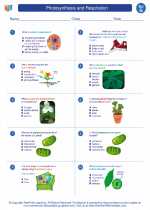 Photosynthesis and Respiration
Photosynthesis and Respiration  Worksheet/Answer key
Worksheet/Answer key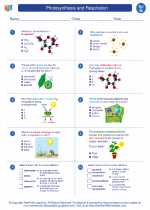 Photosynthesis and Respiration
Photosynthesis and Respiration  Worksheet/Answer key
Worksheet/Answer key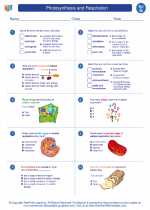 Photosynthesis and Respiration
Photosynthesis and Respiration  Vocabulary/Answer key
Vocabulary/Answer key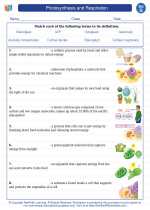 Photosynthesis and Respiration
Photosynthesis and Respiration  Vocabulary/Answer key
Vocabulary/Answer key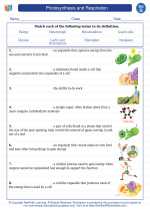 Photosynthesis and Respiration
Photosynthesis and Respiration  Vocabulary/Answer key
Vocabulary/Answer key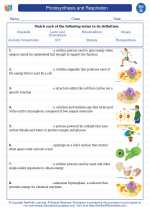 Photosynthesis and Respiration
Photosynthesis and Respiration 

 Worksheet/Answer key
Worksheet/Answer key
 Worksheet/Answer key
Worksheet/Answer key
 Vocabulary/Answer key
Vocabulary/Answer key
 Vocabulary/Answer key
Vocabulary/Answer key
 Vocabulary/Answer key
Vocabulary/Answer key

The resources above cover the following skills:
LIFE SCIENCE
Ecosystems: Interactions, Energy, and Dynamics
Examine the cycling of matter between abiotic and biotic parts of ecosystems to explain the flow of energy and the conservation of matter.
Generate a scientific explanation based on evidence for the role of photosynthesis and cellular respiration in the cycling of matter and flow of energy into and out of organisms.